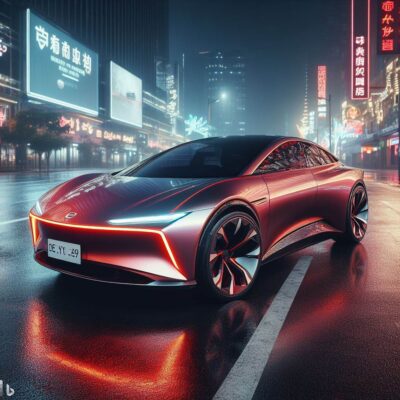
If you’re an expat, traveler, or international buyer interested in purchasing a car in China and exporting it overseas, this guide will walk you through the process step by step.
From finding the right car to navigating legal requirements and shipping logistics, we’ll cover everything you need to know to make the process smooth and hassle-free.
Why Buy a Car in China?
China is the world’s largest automobile market, offering a wide range of vehicles, from affordable domestic brands to luxury imports.
Whether you’re looking for a budget-friendly car or a high-end model, China’s automotive market has something for everyone.
Additionally, buying directly from China can sometimes be more cost-effective than purchasing from local dealers in your home country.
Step 1: Research and Choose a Trusted Platform
The first step in buying a car in China is finding a reliable platform or dealer.
Some popular platforms include:
- AutoFromChina: A platform specializing in exporting cars from China, offering both new and used vehicles.
- Alibaba Motors: A marketplace where you can find car dealers and manufacturers.
- Local Dealerships: If you’re in China, visiting local dealerships can give you a better idea of available options and prices.
When choosing a platform or dealer, ensure they are reputable by checking reviews, certifications, and customer testimonials.
Step 2: Understand Pricing and Costs
When buying a car in China, it’s essential to understand the pricing structure.
Most platforms list prices using FOB (Free On Board) Incoterms, which include:
- The cost of the car.
- Customs clearance and terminal charges in China.
However, FOB prices do not include shipping costs, insurance, or import duties in your destination country.
If you’re unfamiliar with international shipping, many platforms (like AutoFromChina) offer CIF (Cost, Insurance, Freight) pricing, which includes shipping and basic insurance.
Example Scenario:
- You’re interested in a Chery Jetour X90 SUV priced at $15,000 FOB*.
- Shipping from Shanghai, China, to Tincan, Nigeria, costs $2,400* for a 20GP container (including insurance).
- Total cost:$17,400 (excluding import duties and taxes in Nigeria).
Step 3: Legal Requirements for Buying a Car in China
To buy a car in China, you’ll need to meet certain legal requirements:
- Chinese Driver’s License:
- Foreigners must have a valid Chinese driver’s license to purchase and drive a car in China. You can apply for one by passing a written test and submitting the required documents (passport, visa, and health certificate).
- Resident Permit:
- If you’re living in China, a resident permit is required to register the car and obtain a license plate.
- License Plate Registration:
- License plates are issued by local authorities. In some cities, such as Beijing and Shanghai, obtaining a license plate can be challenging due to restrictions and lotteries.
Step 4: Financing and Payment Options
Foreigners in China can purchase cars using the following methods:
- Cash Payment: The simplest option, but it requires substantial upfront funds.
- Financing: Some banks and financial institutions in China offer car loans to foreigners. To qualify, you’ll need:
- A valid residence permit or work visa.
- A Chinese bank account.
- A good credit history in China.
Step 5: Exporting the Car Overseas
Once you’ve purchased the car, the next step is exporting it to your destination country.
Here’s how:
- Prepare the Required Documents:
- Purchase invoice.
- Vehicle registration certificate.
- Export declaration form.
- Bill of lading (provided by the shipping company).
- Choose a Shipping Method:
- Container Shipping: Ideal for high-value cars, as it offers better protection.
- Roll-on/Roll-off (RoRo): A more affordable option for standard vehicles.
- Work with a Freight Forwarder:
- Understand Import Regulations in Your Country:
- Research your country’s customs regulations, taxes, and duties for importing vehicles. For example:
- In the United States, imported cars must comply with EPA and DOT standards.
- In Nigeria, import duties can range from 20% to 70% of the car’s value.
- Research your country’s customs regulations, taxes, and duties for importing vehicles. For example:
Step 6: Taxes, Duties, and Additional Costs
When exporting a car from China, you’ll need to account for the following costs:
- Export Taxes in China: Typically, there are no export taxes for cars, but confirm with your dealer or freight forwarder.
- Import Duties in Your Country: These vary by country and are based on the car’s value, age, and engine size.
- Shipping Insurance: Protects your car during transit.
- Customs Clearance Fees: Charged by customs agents in your destination country.
Step 7: After-Sales Support and Maintenance
Once your car arrives, ensure you have access to after-sales support, such as:
- Warranty Coverage: Check if the manufacturer’s warranty is valid in your country.
- Spare Parts Availability: Research whether spare parts for your car are readily available locally.
- Local Mechanics: Find mechanics familiar with the brand and model of your car.
Tips for a Smooth Process
- Work with Reputable Dealers and Freight Forwarders: Avoid scams by verifying the legitimacy of the companies you work with.
- Double-Check Documentation: Ensure all paperwork is accurate and complete to avoid delays at customs.
- Plan for Delays: Shipping and customs clearance can take weeks or even months, so plan accordingly.
Conclusion
Buying a car in China and exporting it overseas can be a rewarding experience if you follow the right steps and prepare for the associated costs and regulations.
By working with trusted platforms, understanding the legal requirements, and planning for shipping logistics, you can successfully navigate the process and enjoy your new car in your home country.
Happy car hunting and safe travels! 🚗✨
Additional Resources
- Chinese Driver’s License Application Guide: China Driver’s License Guide
- Customs Regulations by Country: World Customs Organization
- Shipping Cost Calculator: Freightos


